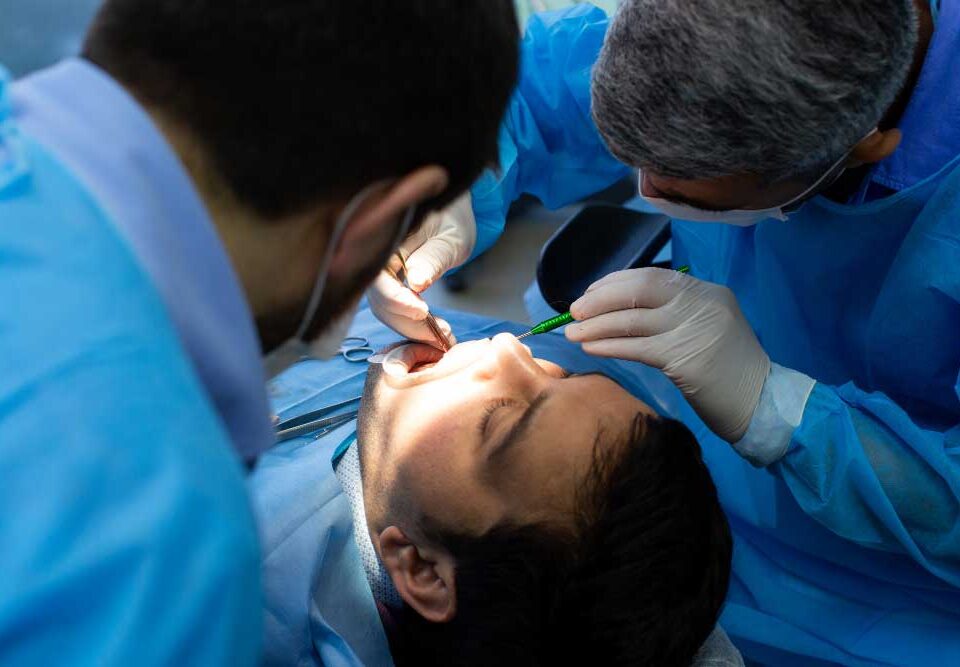
Wisdom Teeth Removal – When and Why You Should Opt for this Procedure?
March 13, 2024
How to Ensure a Comfortable Recovery After Wisdom Teeth Removal
May 6, 2024
Table of Contents
ToggleWisdom teeth, also known as third molars, are the last set of molars to emerge in the mouth, typically during the late teenage years or early twenties. While these teeth may seem like a natural part of dental development, they often pose significant risks to oral health. In many cases, wisdom teeth can become impacted, causing pain, infection, and misalignment of surrounding teeth. Consequently, wisdom teeth removal has become a common dental procedure recommended by dentists and oral surgeons worldwide. In this comprehensive guide, we’ll explore the long-term oral health benefits of wisdom teeth removal and why it’s essential for maintaining a healthy smile.
Understanding the Risks of Retaining Wisdom Teeth:
Before diving into the benefits of wisdom teeth removal procedure, it’s crucial to understand the potential risks associated with retaining these third molars. One of the primary concerns is impaction, where the wisdom teeth do not fully emerge through the gums due to lack of space in the jaw. This can lead to various complications, including:
- Pain and Discomfort: Impacted wisdom teeth can cause persistent pain and discomfort, particularly when they exert pressure on surrounding teeth or nerves.
- Increased Risk of Infection: Partially erupted wisdom teeth create pockets of space where bacteria can accumulate, leading to gum inflammation (pericoronitis) or even more severe infections such as abscesses.
- Dental Misalignment: Wisdom teeth may push against adjacent teeth as they attempt to emerge, causing crowding, shifting, or misalignment of the dental arch.
- Cyst Formation: In some cases, a fluid-filled sac (cyst) can develop around an impacted wisdom tooth, leading to bone damage, infection, and potential damage to nearby teeth and nerves.
- Dental Decay and Gum Disease: Difficulty cleaning around impacted wisdom teeth increases the risk of dental decay and periodontal (gum) disease, which can have long-term consequences for oral health.
The Long-Term Benefits of Wisdom Teeth Removal:
While the initial wisdom teeth removal cost might appear steep, the procedure offers numerous long-term benefits for oral health and overall well-being. Let’s explore some of these benefits in detail:
- Prevention of Future Dental Problems:
By removing wisdom teeth before they cause complications, individuals can prevent a host of future dental problems, including tooth decay, gum disease, and dental misalignment. Eliminating the risk of cyst formation and infection associated with impacted wisdom teeth helps preserve the health of surrounding teeth and supporting bone tissue.
- Prevention of Pain and Discomfort:
Wisdom teeth removal procedure eliminates the source of pain and discomfort associated with impacted or partially erupted teeth, providing long-term relief and improved quality of life. By addressing pain early on, individuals can avoid the need for emergency dental treatment and have a smooth wisdom teeth removal recovery.
- Preservation of Oral Function:
Retained wisdom teeth can interfere with proper chewing and bite alignment, affecting oral function and leading to discomfort while eating. Removing problematic wisdom teeth restores proper occlusion (bite) and allows individuals to chew food more comfortably, promoting better nutrition and overall health.
- Maintenance of Oral Hygiene:
Wisdom teeth are challenging to clean properly, increasing the risk of plaque buildup, tartar formation, and bacterial infections. With proper wisdom teeth removal aftercare, individuals can maintain optimal oral hygiene practices more effectively, reducing the likelihood of dental decay and gum disease.
- Prevention of Orthodontic Issues:
Impacted wisdom teeth can exert pressure on adjacent teeth, causing them to shift out of alignment and disrupting the harmony of the dental arch. Early removal of wisdom teeth can prevent orthodontic relapse and the need for corrective measures such as braces or aligner therapy in the future.
- Enhanced Overall Oral Health:
By eliminating the potential risks associated with retained wisdom teeth, individuals can enjoy improved overall oral health and a reduced likelihood of dental complications later in life. Regular dental check-ups and preventive care following wisdom teeth removal can further support long-term oral health and better wisdom teeth removal recovery.
Conclusion:
Wisdom teeth removal offers significant long-term benefits for oral health, including the prevention of future dental problems, relief from pain and discomfort, preservation of oral function, maintenance of oral hygiene, prevention of orthodontic issues, and enhancement of overall oral health and wellbeing. While the decision to undergo wisdom teeth removal may require careful consideration and consultation with a dental professional, the potential advantages far outweigh the risks associated with retaining problematic third molars. By prioritising proactive wisdom teeth removal aftercare and addressing wisdom teeth concerns in a timely manner, individuals can safeguard their oral health and enjoy a lifetime of smiles. Talk to the experts to know about the wisdom teeth removal cost today.



